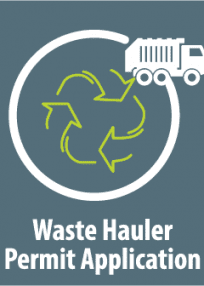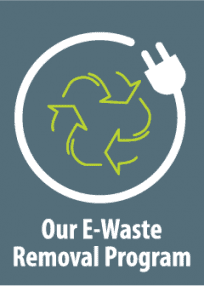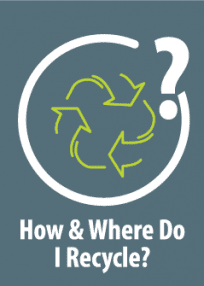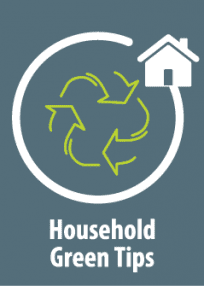Recommendations for Statewide Solid Waste Management Plan
Recommendations for the Statewide Solid Waste Management Plan
The overall State goal is the recommendation to shift focus from collection and disposal to waste
diversion.
There was discussion on whether to set a reduction goal (e.g. 5% year or 40% at the end of the 10
years). The committee recommended not establishing a goal initially but doing a “reality” check in
year five of the plan to see if we were moving in the right direction and whether a numeric goal
would be helpful. The discussion also pointed out that if numeric goals were to be established,
they should be established based on waste generation sectors (household, commercial, industrial,
etc.).
A. Needs Assessment Subcommittee Recommendations
Recommendation #1 – Change the statutes and/or regulations to reflect a change in the purpose of
the Needs Assessment and Solid Waste Management Plan (from tracking waste across RSWMD
jurisdictional boundaries and providing for disposal capacity) to meeting the goal of waste
diversion, as established in the state and district solid waste management plans.
1. ADEQ action for proposing legislative action
2. Mandate
3. Statutory changes during the 2015 legislative session will be required. No additional funding
required.
4. Mandate will be completed after legislative changes are in place and incorporated into a Needs
Assessment template developed by ADEQ and provided to each RSWMD for their use in developing their
10 year plan.
Recommendation #2 – Change the time frames so that each district updates its Needs Assessment and
Solid Waste Management Plan every five years. For proper sequencing, the first Needs Assessment
would be due in year four, and the Solid Waste Management Plan update due the next year. This would
clarify the times in which certain plan elements are due, which are currently confusing and
sometimes contradictory.
1. ADEQ action for proposing legislative action
2. Mandate
3. Statutory changes during the 2015 legislative session will be required. No additional funding
required.
4. Mandate will be completed after legislative changes are in place and ADEQ develops and provides
a management plan template for use by the RSWMDs in the development of their 10 year plan.
Recommendation #3 – Require that each district provide only an annual report updating the
district’s progress toward goals in its own 10-year plan. This would be a short, simple report.
1. ADEQ action for proposing legislative action
2. Mandate
3. Statutory changes during the 2015 legislative session will be required. No additional funding
required.
4. Mandate will be completed after legislative changes are in place and ADEQ develops and
provides an annual report template to the RSWMDs for their use.
B. Collection Subcommittee Recommendations
Recommendation #1 – Weekly curbside/roadside and/or drop-off collection services should be made
available for all household solid waste for residential dwellings within the state by either city,
county or private collection.
1. RSWMD / CITY / COUNTY action
2. Goal
3. No legislation or regulation required. No additional funding required.
4. Goal will be measured by each RSWMD polling the counties and cities within their district to
identify the services being provided and including those results in their annual report.
Recommendation #2 – A minimum of semi-monthly yard waste collection services should be provided for
all residential dwellings within the state. Collected wastes must be managed at a Class Y compost
facility or an alternative approved pursuant to 8-6-220(b). Each district should include the
schedule of implementation within its solid waste plan, beginning with the larger cities.
It was recommended that a Special committee be convened by ADEQ to develop acceptable alternatives
to composting.
1. RSWMD / CITY / COUNTY action
2 | P a g e
2. Goal
3. No legislation or regulation needed. No additional funding required.
4. Goal will be measured by each RSWMD polling the counties and cities within their District to
identify the services being provided and including those results in their annual report.
Recommendation #3 – Collection services or a suitable alternative (transfer stations or community
based drop-off locations) for bulky items should be made available for all residential dwellings
within the state. Implementation of the program should be included in each district’s plan and be
based upon population.
1. RSWMD / CITY / COUNTY action
2. Goal
3. No legislation or regulation required. No additional funding required.
4. Goal will be measured by each RSWMD polling the counties and cities within their district to
identify the services being provided and including those results in their annual report.
Proposed to be deleted – Recommendation #4 – Each district must have a waste tire program that
accepts all the tires within the district. It must be adequate to handle all of the tires generated
by residents and businesses within the district’s area.
There is currently a waste tire program that meets these requirements; therefore no action is
required at this time. Committee members agreed that his recommendation should be deleted from the
plan as no further actions were identified.
C. Disposal Subcommittee Recommendations
Recommendation #1 – Evaluate the disposal capacity of permitted landfills. Establish a 7-year
minimum of disposal capacity for each district. If a district has no existing Class 1 landfill or
has a facility with less than 7 years’ capacity, it could partner with an adjoining district or
neighboring state to offer low cost disposal for their residents.
1. ADEQ action for proposing legislative changes and RSWMD ongoing action for the planning and/or
securing disposal capacity
2. Goal
3. No legislation or regulation required. No additional funding required.
4. Goal will be measured by each RSWMD reporting the permitted disposal capacity available to
residents in their annual report.
Recommendation #2 – Evaluate the waste stream in the geographical area of each district through an
annual waste audit. Develop a business plan for the diversion and recycling of waste based on the
audit results.
1. RSWMD action on audit performance
2. Goal
3. No legislation or regulation needed. No additional funding required.
3 | P a g e
4. Goal will be measured by each RSWMD reporting waste audits results and waste diversion program
decisions and goals in their annual report.
Recommendation #3 – Expedite the permitting process through the addition of personnel and other
resources at ADEQ.
1. ADEQ action
2. Goal
3. No statutory changes will be needed. Regulatory changes may result after evaluation of the
permitting process is performed. No additional funding will be needed.
4. Goal will be measured by ADEQ after conducting a process evaluation to streamline the permit
review process, where possible, and to identify and develop additional guidance for permit
application development. The current average permitting timeframe prior to this streamlining
evaluation will be the baseline for measurement.
Proposed to be deleted – Recommendation #4 – Allow for the establishment of “dirty” material
recovery facilities (MRFs) at permitted landfills.
Members of the committee agreed to remove the recommendation because “dirty” MRF are currently
permissible with ADEQ permitting as Solid Waste Recovery Facilities and no further actions were
identified.
Recommendation #4 – Require districts to establish a Household Hazardous Waste program (either
permanent sites or collection events) within their boundaries.
1. RSWMD action on planning events and establishing HHW programs
2. Mandate for districts that access the $2 fee per Act 209 of 2011 and a goal for districts that
do not.
3. No legislation or regulation needed. No additional funding required.
4. Mandate/Goal will be measured by either reporting by the RSWMD if they are the implementers of
this program or RSWMD polling the counties and cities within their district on their HHW programs
and collection events. The results will be included in their annual report.
Recommendation #5 – Phase in bans of certain materials from landfills, including HHW, e-waste,
clean cardboard, etc., and require manufacturer responsibility programs for recycling or reusing
those materials.
1. ADEQ action(s) on proposing legislative changes based on recycling market or reuse option
availability and stakeholder feedback.
2. Mandate
3. Legislative action would be required on landfill bans for all waste types except for electronic
waste which would be banned through regulatory changes. Additional funding could be required to
ensure that waste materials proposed to be banned are managed in a sustainable manner.
4. Mandate will be tracked and achieved by monitoring ADEQ legislative proposals that result in
materials being banned from landfills. The number of items will be tracked by ADEQ.
4 | P a g e
D. Recycling Subcommittee Recommendations
Recommendation #1 – All municipal waste recycling programs should evaluate the economic viability
of accepting the following items: paper products, including news print, cardboard, white office
paper, mixed paper, magazines, junk mail catalogs, phone books, boxboard and chipboard; metals,
both steel and aluminum cans; plastic – #1PET, #2 HDPE and others where possible; clear and colored
glass (no window glass, glass ceramics, light bulbs or ovenware); and white goods (large
residential appliances).
1. RSWMD/County/City action on expansion of their recycling program as waste audits and economic
analyses support.
2. Goal
3. No legislation or regulation needed. No additional funding required. Allocation of recycling
funding distributions will be managed by the districts.
4. Goal will be measured by RSWMD reporting the location, available services and items accepted
in all municipal waste recycling efforts, to include county and city programs, in their annual
report
Recommendation #2 – All incorporated cities with a population of 5,000 or more offer residential
curbside recycling. Communities of this size must work with the districts to make available
convenient opportunities for commercial and multi-family recycling. A minimum of semi-monthly
collection services or a suitable alternative system (e.g. transfer stations) for recyclable
material collection should be made available for all residential dwellings within the state. Cities
should be required to implement a curbside recycling program, beginning with the most populated
cities and eventually including cities of all sizes. The implementation schedule should become part
of each district’s plan.
1. RSWMD/City action
2. Goal
3. No legislative or regulatory action required. No additional funding required.
4. Goal will be measured by RSWMD reporting on municipal waste curbside recycling opportunities in
each city in the district, with a population over 5,000 or more, in their annual report.
Proposed to be deleted – Recommendation #3 – All incorporated cities with a population of less than
5,000 offer convenient residential, multi-family, and commercial recycling opportunities, such as
drop off locations. This should be done in cooperation with the districts.
Recommendation proposed to be removed because no action item has been identified. Regulation
28.407 mandates that each county offer recycling opportunities for a minimum of three items and the
committee felt that meets the recommendation of convenient recycling opportunities for cities less
than 5,000.
Recommendation #4 – Districts will encourage the development and implementation of public
venue/special event recycling programs. Districts will offer guidance for best management
practices, education assistance and information, along with collection and marketing strategies for
public venue facilities and special events. Districts will discourage use of non-recyclable items
like Styrofoam cups.
1. RSWMD action
5 | P a g e
2. Goal
3. No legislative or regulatory action required. No additional funding required.
4. Goal will be measured by RSWMD reporting the special event recycling programs in their annual
report.
E. Special Recoverable Materials Subcommittee Recommendations
Special Waste Definition: (Reg. 22.102) – any materials that require special handling precautions
and disposal procedures for the landfill owner or operator beyond the normal activities associated
with landfill operations.
Recommendation #1
Establish a series of workshops and/or committees to explore the alternative uses of special
recoverable materials in other states. This recommendation should be implemented in early 2014.
1. ADEQ action
2. Goal
3. No legislative or regulatory action required. No additional funding required.
4. Goal will be measured by ADEQ tracking the output of workshops and committees developed for
alternate uses for special waste.
Recommendation #2 – Develop an on-going directory of special recoverable materials that, if
diverted from landfills, would conserve resources and provide an additional market of reusable
materials. The use of these materials should follow ASTM standards or other industry criteria. This
directory should be ready to go on the ADEQ website by June 1, 2014.
1. ADEQ action
2. Goal
3. No legislation or regulation required. No additional funding required.
4. Goal will be monitored by ADEQ establishing a directory for diversion and alternate use options
for special recoverable materials using insight from stakeholders and researching other states
efforts.
Recommendation #3 – Encourage and incentivize the use of thermal recovery from municipal,
commercial and industrial sources.
1. ADEQ action
2. Goal
3. No legislation or regulation required. No additional funding required.
4. Goal will be measured by ADEQ building a directory of organizations that utilizes thermal
recovery. (Additional research was going to be conducted by ADEQ on other thermal recovery
sources). ADEQ will also clarify the applicability of the Recycling Tax Credit Program to thermal
recovery projects.
6 | P a g e
Recommendation #4 – Encourage ADEQ and districts to exercise due diligence in the selection, use
and operation of recycling and disposal facilities.
1. ADEQ and RSMWD action
2. Goal
3. No legislation or regulation required. No additional funding required.
4. Goal will be measured by ADEQ developing a checklist for evaluating the compliance status of
potential vendors for use by ADEQ and the RSWMDs in their respective procurement processes. ADEQ
will continue to update their website with all inspections and enforcement actions
Recommendation #5 – Develop an illegal dump program that provides additional resources to identify
and remediate illegal dumps, while providing education and enforcement to prevent future dumping.
1. ADEQ action to propose legislation for a funding source for illegal dump clean-up and RSWMD
action to operate and maintain a district illegal dump control program.
2. Goal
3. Legislation will be required to establish a funding source and program for the use of these
monies.
4. Goal will be completed after legislative changes are in place and RSWMD begin reporting the
identification and cleanup of illegal dumps in their district and their educational programs to
prevent illegal dumping in their annual report. The current number of valid illegal dumps reported
to ADEQ will be compared to the inventory in upcoming years.
F. Education and Public Participation Subcommittee Recommendations
Recommendation #1 – Implement a statewide media campaign addressing various avenues of solid waste
management, including proper disposal, handling special waste streams (paint, sharps, HHW), waste
reduction and recycling. The campaign should also address improper/illegal disposal (e.g., burn
barrels, burning household wastes etc.). Pick-up Arkansas should be considered as a model. Develop
a media and/or education campaign that recognizes and explains the current and future costs of (1)
transporting, diverting, disposing and recycling solid waste, (2) operating a properly run
disposal facility, (3) maintaining closed landfills, and (4) developing emerging technologies. The
campaign should also emphasize the economic impact a properly operated disposal program will have
on local and state economic development.
1. ADEQ action for an annual campaign focusing on different waste each year as well as solid waste
management cost.
2. Goal
3. No legislation or regulation required. No additional funding required.
4. Goal will be monitored by tracking the different media outlets utilized by ADEQ to educate and
disseminate information addressing solid waste matters.
Recommendation #2 – Every regional solid waste management district should have an updated, accurate
website (or webpages on a partner’s website) that provides citizens easy-to-use access to
information about recycling, composting, waste reduction and waste management services in their
communities.
7 | P a g e
Information should include what materials are accepted, days and hours of operation, physical
location, how materials are collected/accepted and contact information for further questions. The
districts are to ensure that city and county recycling/diversion programs are financially
sustainable and are using best management practices.
1. RSWMD action
2. Mandate
3. Legislation, regulation and additional funding may be required.
4. Mandate will be measured by each district having an operational, updated web presence. This
can be accomplished by combining resources with counties or cities within the district.
Recommendation #3 & #4 Combined – Districts should develop partnerships within communities to
improve information dissemination. Solid waste districts and individual waste management entities
(cities, counties, designated recycling collection centers, etc.) should use social media to
increase awareness of waste management methods and opportunities.
1. RSWMD action
2. Goal
3. No legislation or regulation required. No additional funding required.
4. Goal will be monitored by RSWMD providing information regarding partnership efforts and
examples of social media utilization in their annual report.
Proposed to be deleted – Recommendation #5 – Requirements for teaching environmental education in
schools should be increased/expanded or established
Recommendation was recommended to be removed because no action item was identified. The current
efforts of environmental education performed by ADEQ in partnerships with the districts will
continue to be a focus of the state in aiding with the overall State goal of waste diversion.
8 | P a g e






